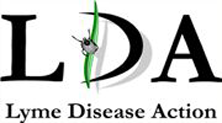Lyme Disease Action (LDA) broadly welcomes the NICE Guideline published this week. It is not the ‘game changer’ some may have been hoping for. But nor are any perceived shortcomings cause to demand their wholesale withdrawal, as is being suggested in some quarters. LDA feels now is not the time to “throw the baby out with the bath water”.
Rather, LDA recognises the work that has gone into the guideline, the engagement with patient groups, the advances made in recommending more treatment in early disease, and the recognition of the need for more research. LDA is pleased the NICE committee formally recognises the uncertainties about diagnosing and treating Lyme disease, uncertainties that LDA identified 5 years ago. We hope that the National Institute for Health Research will initiate a funding call. NICE Guidelines set standards for treatment. This Guideline is a gain. It increases duration of treatment. This is a gain. It also makes clear that doctors are free to use their clinical judgement to depart from such guidance. This is a gain. However, few doctors are sufficiently aware of, or experienced in, Lyme disease to do so. Still fewer have the knowledge to understand the nuanced results of diagnostic tests, which themselves have inherent limitations. We are worried that under-pressure doctors will simply look up the table of recommended treatment options without realising that the evidence underpinning that treatment is recognised by NICE to be of poor quality or even missing.
NICE Guidelines set standards for treatment. This Guideline is a gain. It increases duration of treatment. This is a gain. It also makes clear that doctors are free to use their clinical judgement to depart from such guidance. This is a gain. However, few doctors are sufficiently aware of, or experienced in, Lyme disease to do so. Still fewer have the knowledge to understand the nuanced results of diagnostic tests, which themselves have inherent limitations. We are worried that under-pressure doctors will simply look up the table of recommended treatment options without realising that the evidence underpinning that treatment is recognised by NICE to be of poor quality or even missing.
The Guideline also stops short in key areas. Particularly frustrating is the absence of any strong recommendation for development of specialist service provision, where long-term and late diagnosed disease can be treated and UK clinicians can gain in experience. LDA is concerned that without the safety net of an experienced, specialist service, some sick patients, especially those with complex, seronegative, or late diagnosed Lyme disease, will continue to seek out private and costly alternative methods of diagnosis and treatment some of which may have little or no robust evidence behind them, with no guarantee of success. This can be the only choice when the NHS fails. LDA believes that clinical research as recommended by NICE will be very difficult unless it is embedded in the work of a specialist service and that any specialist service should necessarily engage in research, with patient involvement at every stage of planning.
The Guideline recommends referring ‘difficult’ cases to “specialists”. In most cases difficult means late diagnosed or inadequately treated, but we have to recognise that it may also mean that the patient genuinely does not have Lyme disease. Logically, patients with early diagnosed and promptly treated Lyme disease should not go on to become ‘difficult cases’, but some do. The elephant in the NICE room is that there are NO Lyme disease specialists in the NHS to whom GPs can refer. LDA’s Medics Support desk regularly receives requests from GPs seeking such an NHS specialist to refer to. 
Because Lyme disease is a multi-system disease GPs have hitherto referred to individual consultants, specialists in each of the medical areas. The, often very unwell, patient may be processed through many months of appointments with consultants in Neurology, Ophthalmology, Cardiology, Endocrinology, Infectious Diseases and so on. These consultants are operating in a ‘silo’, returning their opinion and findings, back to the referring GP. To counter this LDA has been pressing hard for multi-disciplinary centres of expertise to which GPs can refer. LDA says such centres would enable medical professionals to learn, develop, and disseminate best practice in Lyme disease.
LDA feels that there is a need to get the specialists out of their silos and working for patients as a team. For 15 years we have consistently argued for better medical care and treatment and for research and science in fighting this debilitating, and occasionally fatal, disease. We will continue to do that because, despite the undoubted gains in this NICE Guideline, there is much more to do.
Read what NICE says.

 Printer Friendly
Printer Friendly